TestCard UTI Test
TestCard is an instant at-home dip test that will tell you quickly and accurately if you're likely to have a urinary tract infection (UTI). It's fast, reliable and all you need is your mobile phone to take the test and get results from the comfort of your home in just a few seconds.
Prices from £12.00
Before placing your order, please make sure your mobile device is compatible with TestCard.
TestCard is a simple test you can carry out at home to find out if you're likely to have a UTI. All you need to do is:
- collect a sample of your urine
- dip one of the supplied UTI test strips in your sample
- get results on your mobile phone in seconds
If your results indicate that you may have a UTI, our doctors can diagnose and recommend the most appropriate treatment that we can deliver to your door.
Before ordering your TestCard please make sure your mobile device is compatible. Otherwise, you will not be able to receive your results.
Compatible devices: please check here to see if your device is compatible
Please make sure you have an up to date operating system installed on your device for TestCard to work.
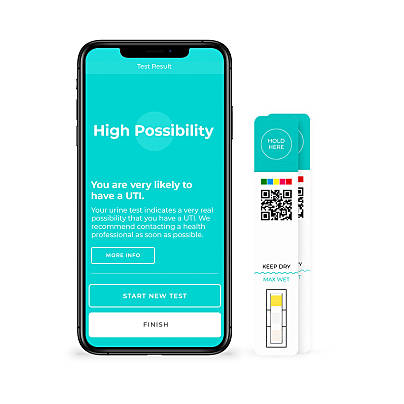
In stock. Prices from £12.00
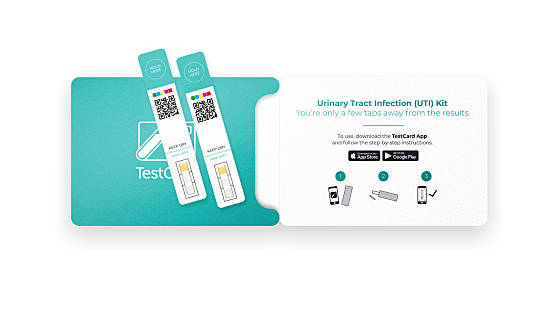
In stock. Prices from £32.99

No results found.
Please check your spelling or try another treatment name.

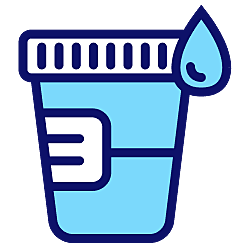
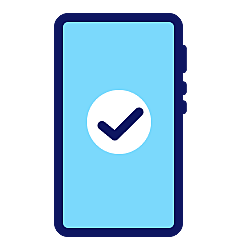
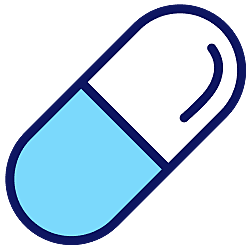
About TestCard
How does a TestCard work?
TestCard is a convenient method for testing for a UTI from your home with your mobile phone. It works similarly to UTI dip tests or other testing strips you might have used before but gives you an easy to read test result while giving our doctors enough detailed information to provide a diagnosis.
Your TestCard works in the following way:
- Each TestCard contains a set of UTI test strips
- Use a clean container to collect a sample of your urine. Do not contaminate your sample. Make sure your urine doesn’t touch anything apart from the clean container.
- Dip your TestCard UTI strip into your urine sample. Open the TestCard app on your phone, and use it to scan the QR code on the UTI strip.
- You will receive your test results on your phone in seconds, which our doctors can use to provide a diagnosis.
- If you are diagnosed with a UTI, our doctors will provide you with expert advice and recommend treatment if required.
What mobile devices does TestCard work with?
Before ordering your TestCard, it’s important to make sure it’s compatible with your mobile device. Below is a full list of all devices that work with TestCard.
TestCard is compatible with:
Iphone: SE2020, 12, 12 Mini, 12 Pro, 12 Pro Max, 11, 11 Pro, 11 Pro Max, X, XR, XS, XS Max, 8, 8 Plus, 7, 7 Plus, 6, 6 S, 6 Plus.
Samsung: Galaxy S8, Galaxy S7, Galaxy S6, Galaxy A5, Galaxy S9+, Galaxy S10+, Galaxy S20, Galaxy S20FE, Galaxy S20FE 5G, Galaxy A51, Galaxy Note 10, Galaxy Note 20 5G, Galaxy Note 20 Ultra 5G.
Huawei: Mate 20 Lite
Xiaomi: Mi 8
Please make sure you have an up to date operating system installed on your device for TestCard to work. For the iPhone, you will need iOS 11+, and for Android, Android 6+.
-
-
UTIs are easy to diagnose and treat once you're aware you have one, so speaking to a doctor or taking a test if you have symptoms is very important. This is because UTIs can lead to complications if they're left untreated for too long. So, if you're worried you might have one, you should always get tested so you can get the right treatment quickly.
UTIs are far more common than you think, with between 10-20% of women likely to experience the symptoms of a UTI. And, although most aren't dangerous if they're treated early, they can lead to serious health problems when left undiagnosed. For example, if left untreated, the bacteria that causes UTIs may spread to other parts of your body, such as your kidney, leading to long-term damage and possible kidney failure in the future.
If you're experiencing the symptoms of a UTI, it's always best to take a test or speak to your doctor for advice.
-
-
UTI’s happen when certain bacteria make their way into your urinary tract. In most cases these bacteria are the same ones that are found in your bowels, but other types of bacteria (like sexually transmitted ones) can also cause UTIs. If the bacteria enter your bladder or kidneys, they can cause an infection. UTIs are more common in women than men. We think this is partly because women have a shorter urinary tract, so the bacteria does not need to travel as far to infect the bladder or kidneys.
Some of the common symptoms of UTIs include:
- having to pee more frequently than usual, especially at night
- a burning or stinging sensation when you pee
- cloudy urine
- blood in your urine
- feeling tired and feverish
- pain or discomfort in your belly or in your back
In mild cases, UTI symptoms will clear up without treatment. However, if you get UTIs frequently, or your symptoms are more severe, you should speak to a doctor to get antibiotic treatment. Left untreated, bladder and kidney infections can cause serious health problems.
UTI symptoms usually go away within 24 to 48 hours after treatment begins, though if you have a kidney infection, it may take 1 week or longer for symptoms to clear up after treatment.
-
-
You should get tested for a UTI as soon as you think you have one or start showing symptoms. The earlier you test and get treatment, the less likely you are to get any further complications from the infection. It’s particularly vital to get tested if you notice that your symptoms worsen or aren’t improving after a few days.
If you get UTIs regularly, you should speak to your doctor to make sure there’s nothing else causing them. You should also speak to your doctor if you’re a man with symptoms of a UTI, have UTI symptoms following surgery, or your symptoms continue after getting treatment.
-
-
UTI is a shortened way of saying ‘urinary tract infection’, which is also known as cystitis. UTIs tend to be caused by bacteria travelling up the urethra and infecting your urinary tract. They can also be caused by other harmless bacteria living on your skin that can also get to your urinary tract. This can happen in many ways, from wiping after using the toilet to having sex.
Your body uses your urinary tract for producing and getting rid of urine from your body. It’s made up of your kidneys, bladder and urethra. Your kidneys filter urine from your blood, and it’s stored in the bladder until you urinate. When you urinate, it travels down the urethra and out of your body. A UTI can affect any part of this system as it all depends on where the bacteria causing the infection has travelled.
- If your bladder becomes infected, it is known as cystitis.
- If your urethra is infected, you have urethritis.
- If your kidneys become infected, it is known as a kidney infection or pyelonephritis.
-
-
UTIs affect both men and women, but they’re far more common in women because of the way bacteria enters the urinary tract. Men have longer urethras than women, so the bacteria that causes the infection has less distance to travel in women, making women more likely to get UTIs.
-
-
Having an STI can cause a UTI, and you can also pass on the bacteria that causes UTIs to your partner by having sex, but a UTI is not a sexually transmitted infection.
If you have a UTI, you do not need to tell your previous sexual partners about it, but you should avoid having sex until you’ve finished your treatment. This is both to avoid passing on the bacteria and because having sex with a UTI can be painful and uncomfortable.
-
-
There are a few different options for treating UTIs that you can choose from if you test positive for an infection. Your GP will be able to support you in making a decision and guide you through your choices. Finding the right treatment for you will also depend on how bad your UTI is, whether you've had a UTI before, and what's caused it. You will also need to review different treatment options if you are pregnant.
ZAVA provides Macrobid, which is the brand name of an antibiotic called Nitrofurantoin. It's a three day course of antibiotics that you will take twice daily. Macrobid is considered the best antibiotic for treating cystitis in the UK.
Macrobid is a prescription only antibiotic, so you can not purchase it over the counter. The fastest and safest way to get your prescription is by filling in our online questionnaire so our doctors can assess you and prescribe.
After you start treatment, your symptoms should begin to improve within 24 hours, but you should never stop taking your antibiotics early, even if you do feel well. Make sure you finish all of your doses and do not skip any. This is to prevent your body from building a resistance to antibiotics.
Depending on the type of UTI you have, you may not need treatment. This is because some UTIs can go away without antibiotics. And, if you don't need antibiotics, we always advise avoiding using them to stop any chances of developing resistance.
-
-
Some non-prescription medications and treatments can also be used to help treat UTIs or manage your symptoms. Some examples of these are:
- hot water bottles or hot wheat bags, which you can place between your thighs or on your stomach to help with discomfort or pain
- paracetamol, ibuprofen or other painkillers can be used to help manage aches and pains
- paracetamol can also help relieve any shivering, sweating or chills that a raised temperature may cause
- Increasing your water intake and drinking more sugar-free fluids. It's not entirely known how effective this is for treating cystitis, but many people find it helpful. This may be down to more water passing through your urinary tract helping pass the infection
- avoiding sex
You may have also heard that drinking cranberry juice can help with a UTI, but there is very little evidence supporting this.
If you are concerned that you may have a UTI, you should always speak to a healthcare professional.

Dr Kathryn Basford is a qualified GP who works as a GP in London, as well as with ZAVA. She graduated from the University of Manchester and completed her GP training through Whipps Cross Hospital in London.
Meet our doctorsLast reviewed: 23 Jan 2021
-
At-Home UTI Test Kit, TestCard [accessed February 2023]
-
Urinary tract infections (UTIs), National Health Service [accessed February 2023]
-
Urinary Tract Infection Treatment, Stanford Health Care [accessed February 2023]
-
Cystitis, National Health Service [accessed February 2023]
-
Macrobid 100mg prolonged-release capsules, Patient Information Leaflet, EMC [accessed February 2023]





